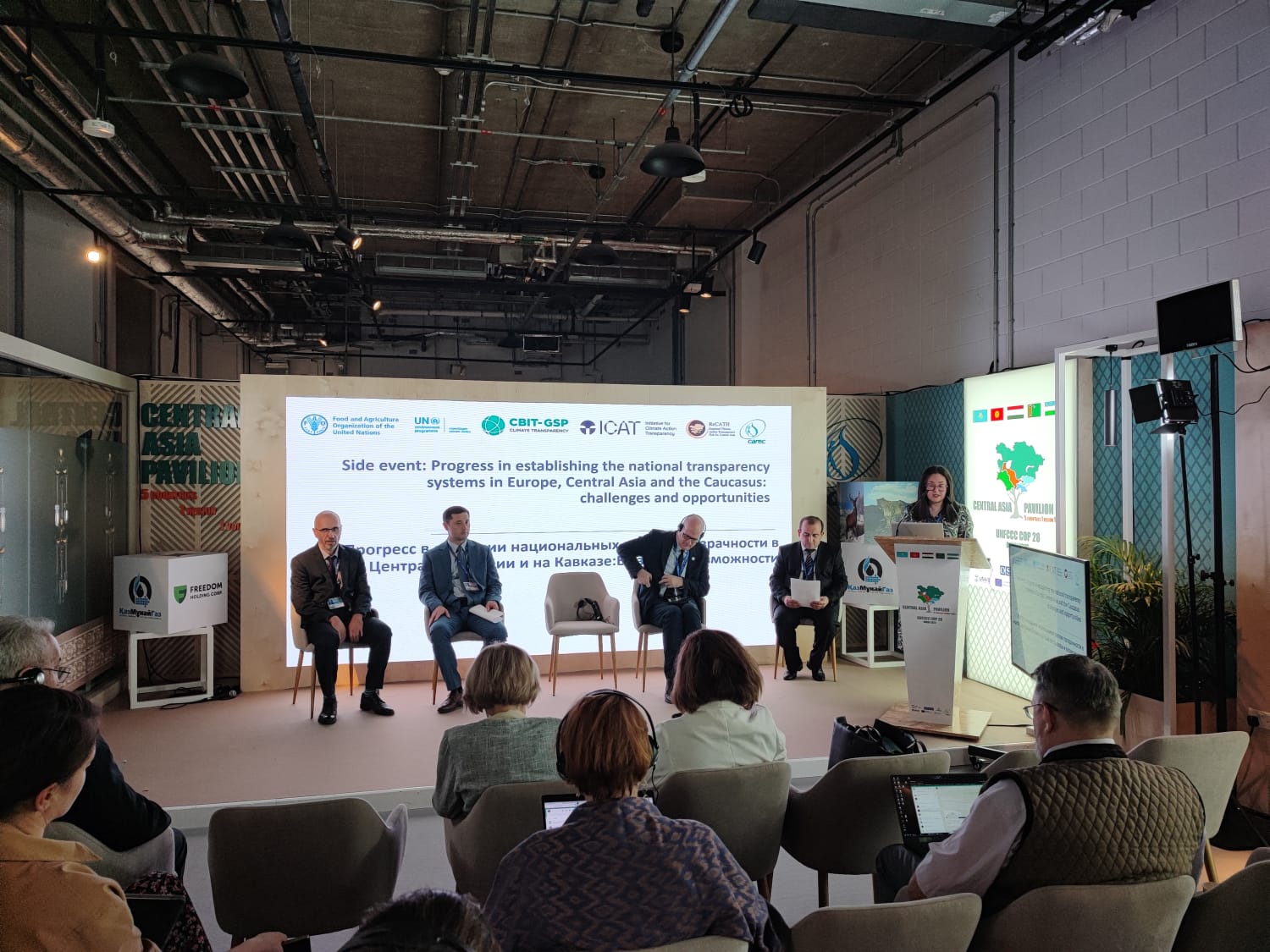Dubai – UAE – Well-built national transparency systems in Central Asia can catalyze improving domestic policies, streamlining climate action, and strengthening support for international climate finance. The Executive Director of the Regional Environmental Center for Central Asia (CAREC) Zafar Makhmudov stated at the side event “Progress in establishing the national transparency systems in Europe, Central Asia and the Caucasus: challenges and opportunities” in the COP28 CA Pavilion on December 4, 2023.
The event brought together UNFCCC NFP, key experts and specialists of the countries in Europe, Central Asia and the Caucasus on transparency and climate reporting, international organizations, such as FAO, GIZ, ICAT, CAREC, UNFCCC, UNEP-CCC, UNDP, IDBs, and climate funds, which deal with the transparency agenda in the region.
Martial Bernoux, Senior Natural Resources Officer, FAO, briefed on FAO's work on transparency. He noted that FAO contributes to the development of cooperation in this direction. FAO also supports countries in accessing GEF funds.
Fatima-Zahra Taibi, Senior Advisor at the Copenhagen Climate Centre – UNEP (UNEP-CCC), stressed the criticality of reducing greenhouse gas emissions to prevent global temperature rise under the Paris Agreement. According to her, the expanded transparency framework is a key international tool in monitoring countries' implementation of climate actions.
Senior ICAT officer Oleg Bulanyi noted that the countries are not on the right trajectory to implement the Paris Agreement. In his opinion, there is a gap between the stated goals and their implementation, and transparency is just a tool that will help close this gap. He emphasized the significant role of expertise in ensuring transparency and information about the creation of an expert network in the Central Asian region.
Internationally, one of the key pillars of the Paris Agreement is the Enhanced Transparency Framework as set in Article 13, which requires countries to provide national Greenhouse Gas Inventories and information necessary to track progress made in implementing and achieving its Nationally Determined Contributions (NDCs) as well as encourages them to provide information related to climate change and adaptation and information on, technology transfer, capacity building, and support needed and received.
Over the recent years, the support for transparency has increased for the countries of Central Asia and the Caucasus. Capacity building initiatives from GEF via FAO national CBIT projects, ICAT/CAREC ReCATH regional project and global CBIT-GSP initiative for transparency aim to support the non-Annex 1 parties in developing their capacities to build and manage a robust, transparent framework that allows them to effectively implement the Paris Agreement and facilitates the transition of countries to the new reporting requirements under the Enhanced Transparency Framework (ETF).
The countries of Central Asia and the Caucasus evolved to the stage when the national, global and regional projects on capacity building for transparency entered an implementation phase, bringing lessons learned and achievements, which look forward to future activities.
At the side event, the participants shared knowledge on the progress the countries of Europe, Central Asia and the Caucasus made so far in establishing national transparency systems and transitioning towards the ETF.
The event also introduced key supporting agencies on climate transparency in the region and learned about their support on capacity building for transparency in the next years.
The side event is jointly organized by CAREC, ICAT, FAO and UNEP-CCC.
Video recording is at https://www.youtube.com/watch?v=0hR4w8fFNis
Learn more about COP28 CA Pavilion at https://www.carececo.org/main/activity/mettings/cop28/
.jpeg)

